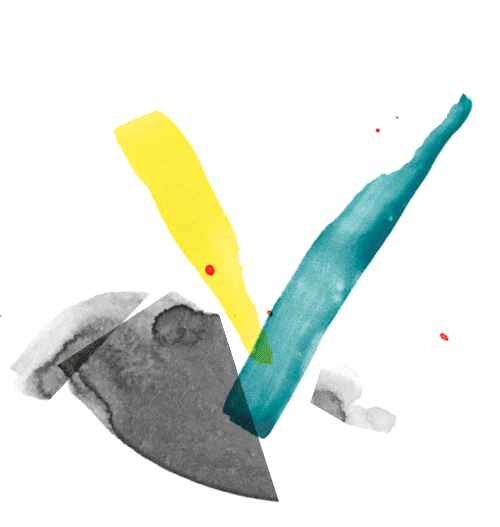

Sign up for our newsletters. You can change the settings or unsubscribe at any time.
Thank you for your subscription. We have sent you an e-mail with a confirmation link.


exp. 1
exp. 2
exp. 3

Documentation
exp. 1: The Bones of the World
Das Archiv schweigt. Nicht. [The archive remains silent. Not.], Die Remise – activation by Çiçek Bacık and Miriam Schickler, 31.10.2019
Discussion with Çiçek Bacık (Daughters and Sons of Gastarbeiters), Saraya Gomis (teacher), Markus Schega (director Nürtingen elementary school), Miriam Schickler, and Tuğba Tanyılmaz (project manager i-Päd Initiative intersektionale Pädagogik [Initiative for Intersectional Education]) In German
In 2018 Miriam Schickler reviewed the written archive of the Nürtingen elementary school in today’s Berlin-Kreuzberg with a special focus on the history of migration. The archive consists of the school chronicle beginning in 1945 and conference minutes from the 1950s to the 1970s. These are testimonies of the majority society, which are informative in regard to dominant delineations of the migrant “other.” The voices of those who are talked about do not appear: people who came to the primary school as “foreign” school children from the 1960s onwards, who represented 80 percent of the school children from the 1970s, and whose children and grandchildren continue to attend the Nürtingen elementary school today.
In order to activate the Nürtingen archive, Çiçek Bacık and Miriam Schickler invite various protagonists. They fill the gaps in the archive with their own positioning and experience. From their working practice, they talk about continuities and discontinuities in the discourses on racism in Berlin schools. Which discourses prevail in regard to the children of migrant workers? What role did the school authorities and local politics play? What were the attitudes of educators and school administrators towards racism in schools at the time? How do they position themselves today against increasing incidents of discrimination at the school and in the battle against racism?
Camera: Thabo Thindi, sound: Paolo Combes
Invitation to the Species: Cecilia Vicuña
Tamaas / Cecilia Vicuña
Podcast
BLM KOREA ARTS
#BlackLivesMatter #BLMKoreaArts
Young-jun Tak
Statement
Expresiones de la locura: el arte de los enfermos mentales
Hans Prinzhorn
Monograph
Hatred Among Us
Lisette Lagnado
Essay
Touching Feeling. Affect, Pedagogy, Performativity
Eve Kosofsky Sedgwick
Monograph
Umbilical Cord Amulet
McCord Museum
Object
By using this website you agree to the use of cookies in accordance with our data privacy policy.

Documentation
exp. 1: The Bones of the World
Das Archiv schweigt. Nicht. [The archive remains silent. Not.], Die Remise – activation by Çiçek Bacık and Miriam Schickler, 31.10.2019
Discussion with Çiçek Bacık (Daughters and Sons of Gastarbeiters), Saraya Gomis (teacher), Markus Schega (director Nürtingen elementary school), Miriam Schickler, and Tuğba Tanyılmaz (project manager i-Päd Initiative intersektionale Pädagogik [Initiative for Intersectional Education]) In German
In 2018 Miriam Schickler reviewed the written archive of the Nürtingen elementary school in today’s Berlin-Kreuzberg with a special focus on the history of migration. The archive consists of the school chronicle beginning in 1945 and conference minutes from the 1950s to the 1970s. These are testimonies of the majority society, which are informative in regard to dominant delineations of the migrant “other.” The voices of those who are talked about do not appear: people who came to the primary school as “foreign” school children from the 1960s onwards, who represented 80 percent of the school children from the 1970s, and whose children and grandchildren continue to attend the Nürtingen elementary school today.
In order to activate the Nürtingen archive, Çiçek Bacık and Miriam Schickler invite various protagonists. They fill the gaps in the archive with their own positioning and experience. From their working practice, they talk about continuities and discontinuities in the discourses on racism in Berlin schools. Which discourses prevail in regard to the children of migrant workers? What role did the school authorities and local politics play? What were the attitudes of educators and school administrators towards racism in schools at the time? How do they position themselves today against increasing incidents of discrimination at the school and in the battle against racism?
Camera: Thabo Thindi, sound: Paolo Combes
Expresiones de la locura: el arte de los enfermos mentales
Hans Prinzhorn
Monograph
Género y colonialidad en busca de claves de lectura y de un vocabulario estratégico descolonial
Rita Segato
Essay
A World Without Bones
Agustín Pérez Rubio
THE MOBILIZATION
Nicolás Cuello
Text
III: La familia son quiénes se alegran con nuestros actos diarios. Detrás de las curadoras de la XI
María Berríos, Agustín Pérez Rubio
Conversation
New Look
Flávio de Carvalho
Performance
By using this website you agree to the use of cookies in accordance with our data privacy policy.

Documentation
exp. 1: The Bones of the World
Das Archiv schweigt. Nicht. [The archive remains silent. Not.], Die Remise – activation by Çiçek Bacık and Miriam Schickler, 31.10.2019
Discussion with Çiçek Bacık (Daughters and Sons of Gastarbeiters), Saraya Gomis (teacher), Markus Schega (director Nürtingen elementary school), Miriam Schickler, and Tuğba Tanyılmaz (project manager i-Päd Initiative intersektionale Pädagogik [Initiative for Intersectional Education]) In German
In 2018 Miriam Schickler reviewed the written archive of the Nürtingen elementary school in today’s Berlin-Kreuzberg with a special focus on the history of migration. The archive consists of the school chronicle beginning in 1945 and conference minutes from the 1950s to the 1970s. These are testimonies of the majority society, which are informative in regard to dominant delineations of the migrant “other.” The voices of those who are talked about do not appear: people who came to the primary school as “foreign” school children from the 1960s onwards, who represented 80 percent of the school children from the 1970s, and whose children and grandchildren continue to attend the Nürtingen elementary school today.
In order to activate the Nürtingen archive, Çiçek Bacık and Miriam Schickler invite various protagonists. They fill the gaps in the archive with their own positioning and experience. From their working practice, they talk about continuities and discontinuities in the discourses on racism in Berlin schools. Which discourses prevail in regard to the children of migrant workers? What role did the school authorities and local politics play? What were the attitudes of educators and school administrators towards racism in schools at the time? How do they position themselves today against increasing incidents of discrimination at the school and in the battle against racism?
Camera: Thabo Thindi, sound: Paolo Combes
A Moment of True Decolonization / Episode #6: Sinthujan Varatharajah. Constructing the Tamil Eelam State
The Funambulist / Sinthujan Varatharajah
Podcast
A World Without Bones
Agustín Pérez Rubio
Fragments of the Artist’s Diary, Berlin 11.2019–1.2020
Virginia de Medeiros
Diary
#fight4rojava
Graffiti
Hatred Among Us
Lisette Lagnado
Essay
Expresiones de la locura: el arte de los enfermos mentales
Hans Prinzhorn
Monograph
By using this website you agree to the use of cookies in accordance with our data privacy policy.

Documentation
exp. 1: The Bones of the World
Das Archiv schweigt. Nicht. [The archive remains silent. Not.], Die Remise – activation by Çiçek Bacık and Miriam Schickler, 31.10.2019
Discussion with Çiçek Bacık (Daughters and Sons of Gastarbeiters), Saraya Gomis (teacher), Markus Schega (director Nürtingen elementary school), Miriam Schickler, and Tuğba Tanyılmaz (project manager i-Päd Initiative intersektionale Pädagogik [Initiative for Intersectional Education]) In German
In 2018 Miriam Schickler reviewed the written archive of the Nürtingen elementary school in today’s Berlin-Kreuzberg with a special focus on the history of migration. The archive consists of the school chronicle beginning in 1945 and conference minutes from the 1950s to the 1970s. These are testimonies of the majority society, which are informative in regard to dominant delineations of the migrant “other.” The voices of those who are talked about do not appear: people who came to the primary school as “foreign” school children from the 1960s onwards, who represented 80 percent of the school children from the 1970s, and whose children and grandchildren continue to attend the Nürtingen elementary school today.
In order to activate the Nürtingen archive, Çiçek Bacık and Miriam Schickler invite various protagonists. They fill the gaps in the archive with their own positioning and experience. From their working practice, they talk about continuities and discontinuities in the discourses on racism in Berlin schools. Which discourses prevail in regard to the children of migrant workers? What role did the school authorities and local politics play? What were the attitudes of educators and school administrators towards racism in schools at the time? How do they position themselves today against increasing incidents of discrimination at the school and in the battle against racism?
Camera: Thabo Thindi, sound: Paolo Combes
New Look
Flávio de Carvalho
Performance
A Moment of True Decolonization / Episode #6: Sinthujan Varatharajah. Constructing the Tamil Eelam State
The Funambulist / Sinthujan Varatharajah
Podcast
THE MOBILIZATION
Nicolás Cuello
Text
Queer Ancient Ways: A Decolonial Exploration
Zairong Xiang
Monograph
Grupo Experimental de Cine en acción
Gabriel Peluffo
Drawing
Struggle as Culture: The Museum of Solidarity, 1971–73
María Berríos
Essay
By using this website you agree to the use of cookies in accordance with our data privacy policy.
By using this website you agree to the use of cookies in accordance with our data privacy policy.




